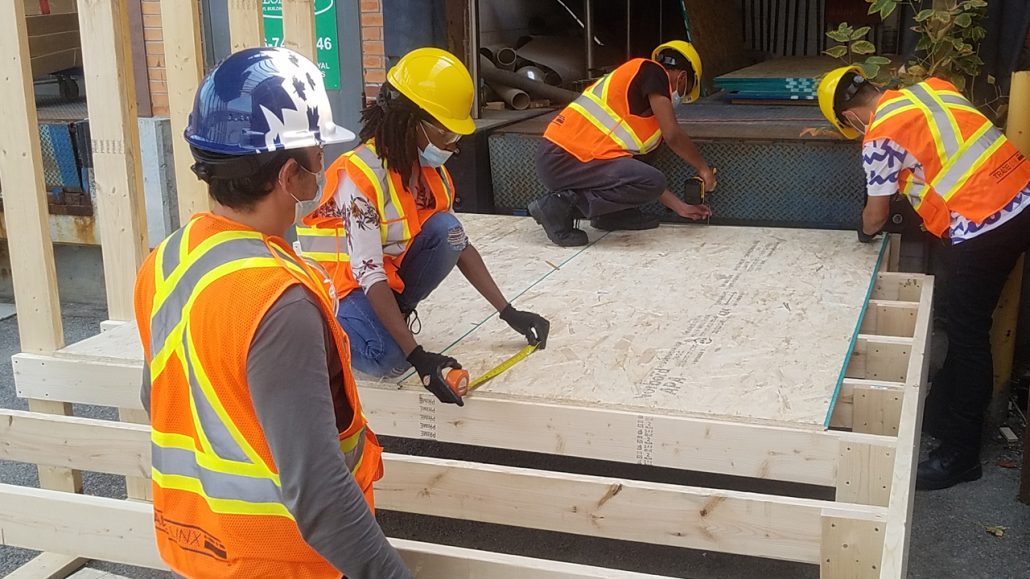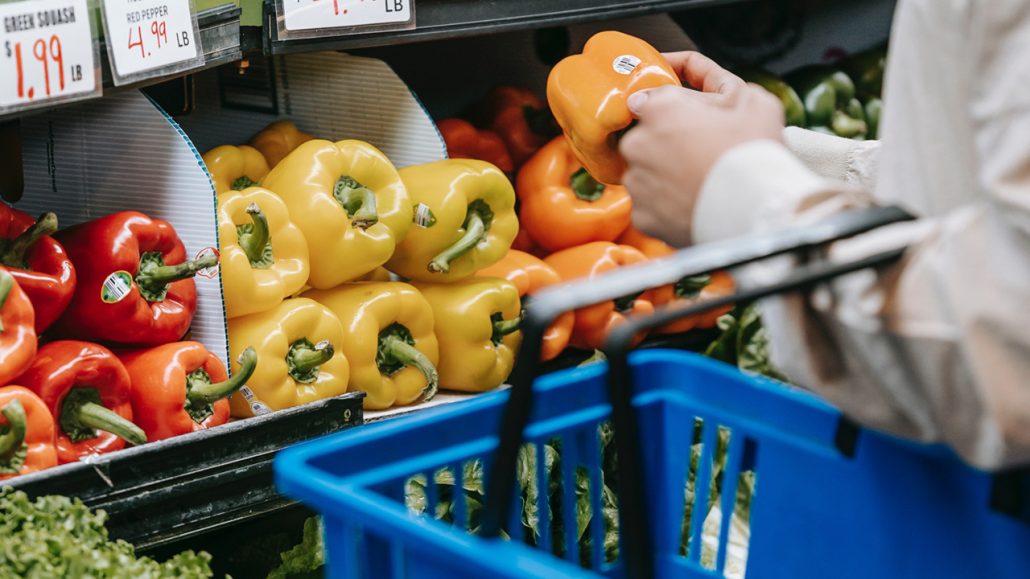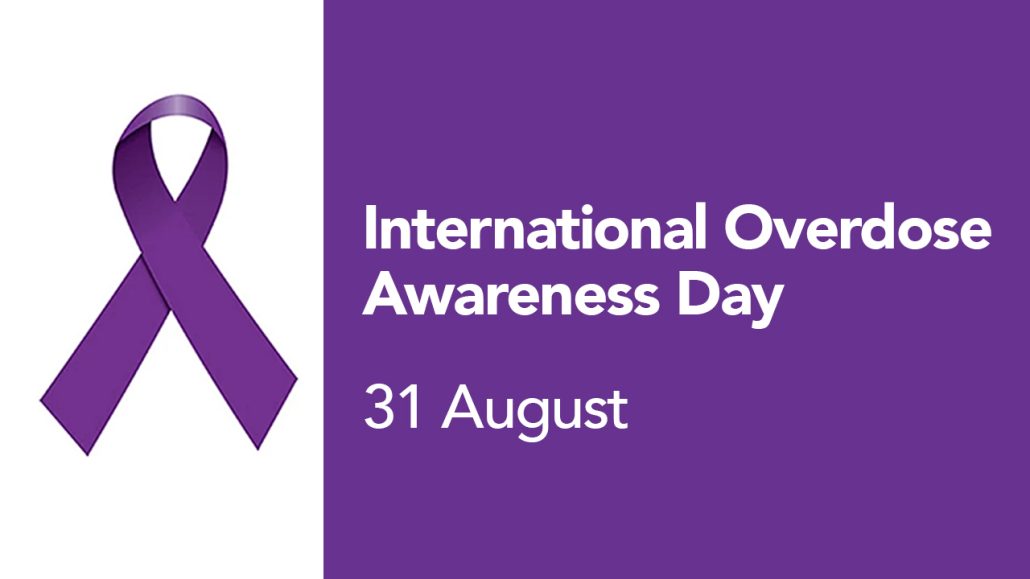
How change is possible when we work together
Dear Friend,
It’s almost Labour Day, a time to reflect on all that we’ve achieved for workers in this country—and the challenges we have yet to meet. As we see how many working people are struggling to keep up with the cost of living, it’s particularly important to remember that this is not just a holiday, it’s a symbol of how change is possible when we work together.
Right now, many of our neighbours face barriers to secure, dignified employment due to discrimination or lack of access to key training or opportunities. United Way is working to connect them to safe and stable employment. A key partner of ours in this work is organized labour. We have a long history with the movement, including partnering with the Canadian Labour Congress for more than 50 years. Together with both Toronto & York Region Labour Council and Peel Regional Labour Council, we’ve championed employment issues and have worked to ensure that workers and their families have access to important social services.
One example? Community Benefit Agreements (CBA). These agreements among the project sponsors, developers, labour and residents, and the community, ensure that big public infrastructure projects like hospitals, transit, and campuses hire locally, including people who are living on a low income, are racialized or immigrants, or who face other barriers to employment. And we’ve seen concrete results from this work: The CBAs we support, including the Eglinton Crosstown, Finch West, and Hurontario LRTs, have created employment for more than 1,500 residents from equity-deserving groups and have generated over $1 million for social enterprises that create jobs for workers who face barriers.
Labour is also an important partner in our Inclusive Local Economic Opportunity (ILEO) initiative in Scarborough’s Greater Golden Mile, where the Labour Education Centre is offering training to help local residents become skilled construction workers. Beyond that, trainees also get a valuable work placement with Aecon and many have been hired into full-time positions.
As we continue to push for inclusive employment—whether through programs that get people working or advocacy around paid sick leave —we are proud to be able to call organized labour, along with community members, corporate partners and donors like you, our allies. Because we all know that our strength comes from our collective approach. From standing united.
Always, and only, thank you.
Daniele Zanotti
President & CEO
United Way Greater Toronto
Things to Know Right Now

Youth Housing
Is a future without youth homelessness possible? The York Region-based Blue Door Shelter, which provides emergency housing to individuals and families, believes so. The organization is overseeing a study aimed at showing federal and provincial leaders how improved income can help youth stay off the streets. They estimate that 25 per cent of the estimated 1,500 people in the area experiencing homelessness are youth. Michael Braithwaite, executive director of Blue Door, gave a shout-out to United Way’s commitment to finding “innovative ways to prevent and end homelessness“. United Way believes access to decent housing is a basic human right. Through our work with Blue Door and others, we are working toward a future in which everyone has access to decent housing and food.

Rent or Food?
Many in the GTA are struggling to make ends meet and being forced to choose between necessities like rent and food. This is a decision no one should have to make, yet it is a very real struggle for many in our communities, and the issue is getting worse. With rising prices and inflation at its highest rate in decades, our community urgently needs sustainable, long-term solutions. Maria Rio of Stop Community Food Centre, a United Way supported organization, writes that poverty “must be treated with the same urgency as COVID-19—and with radical government intervention and accountability.” She suggests raising Ontario’s “surprisingly low welfare rates” should be top priority.
While United Way is encouraged by the province’s recent announcement of a five per cent increase to Ontario Disability Support Program payments—which means a single eligible person can receive up to $1,167 a month—this amount continues to fall well below the average cost of living. In a recent open letter United Way leaders across the province urged the Ontario government to address the staggering issues of housing and income security and to commit to finding solutions to stop the deepening poverty impacting our community.

Opioid Crisis
Wednesday, Aug. 31 was International Overdose Awareness Day, meant in part to raise awareness about the increased toxicity of the drug supply. Here at home, new data reveals that in Ontario, opioids killed more people in the second year of the pandemic than the first, with around eight people per day dying from opioids, representing 2,795 people between April 2021 to March 2022. But these numbers also show a significant increase from 2019, when opioids killed 1,559 Ontarians, or four people per day. The numbers tell us that we need to continue to ensure that all people have access to health care, including harm reduction, to reduce the consequences of illegal and legal drug use. Accessing health care without discrimination is essential, as is ensuring that people can access critical care, mental health resources, harm reduction, and safer supply. United Way is proud to support programs like Street Health’s CHECK program, which works in the GTA to improve the health of people experiencing homelessness, as well as agencies like Dixon Hall, whose stable housing and emergency shelter program also includes harm reduction and mental health case management.
Local Love in Action

Some folks from our United Way community recently showed their local love by assembling backpacks stocked with essential goodies to help students get back-to-school ready. As any caregiver knows, the cost of school supplies can quickly add up, causing extra financial strain on sometimes already over-stretched budgets. Through the recent initiative, donors and their families donated more than 120 backpacks filled with everything from pencils and highlighters to paper and lunchboxes. The kits were delivered to seven of our partner agencies in the GTA. This is just one way our generous community is stepping up to help set students up for success this fall.
Get Involved

Opportunity: Join us for a talk about welcoming refugees to the GTA
We’re proud that the GTA is welcoming refugees from Afghanistan, Ukraine and many other countries, but what needs to happen to ensure our new neighbours thrive? Join us on Sept. 8 as we examine the barriers newcomers and refugees face—and the incredible ways they’re making our region a better home for all. This engaging virtual discussion will be hosted by United Way’s own Nicole McVan, Vice President Philanthropy & Marketing, who will be joined by Jessica Kwik, Director of the Peel Newcomer Strategy Group, and Rebecca Saburi, who will share her personal lived experience. Reserve your spot today.
Opportunity: Launch an employment social enterprise
United Way’s Toronto Enterprise Fund is looking for organizations and entrepreneurs interested in developing their own employment social enterprise (ESE). ESEs are businesses that create training and employment opportunities for people facing systemic barriers to entry into the mainstream labour market. If you’re interested in launching your own ESE, or know someone who is, apply for the ESE Idea Accelerator, a series of eight virtual workshops that will help you develop your idea. Graduates of the program may apply for a Catalyzing Grant of up to $7,500 to create a feasibility study and business plan. Sign up for the ESE 101 webinar on Sept. 8 to get started.